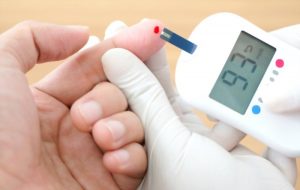Introduction
Diabetes nurse mainly take care of the patients diagnosed with Diabetes, a disease that inhibits the production and absorption of insulin in the body. Diabetes nurse usually are involved in the monitoring and education of the patients and the nursing staffs looking after them. Adjustment with the type and dosage of medication, planning and providing nutritional therapy, exercise, behavioural and psychosocial counselling are added responsibilities of the diabetes nurse. Moreover, their foremost responsibility is prevention, that can only be achieved by educating patients and their families about diabetes and the self-care management skills.
Expected characteristics of a Diabetes Nurse:
The diabetes nurse should possess
- Upto date knowledge on diabetes and its management
- Self-management skills
- Teaching and Counselling skills
- Utilization of evidence-based nursing for developing practices and improvement in results
- Leadership skills
- Provide and facilitate clinical supervision
- Participation in research
- Possess good communication skills and be a bridge between primary and secondary care providers.
Roles of Diabetes Nurses includes: –
The priority work of a diabetes nurse is:
- Monitoring blood glucose levels.
- Working closely with physicians, Nurses and other healthcare professionals.
- Restore fluid and electrolyte imbalances
- Correction of metabolic functions
- Management of underlying cause of diabetes and its process
- Prevention of complications associated with Diabetes
- Educating patients about diabetes and the disease process-medication, diet and nutritional monitoring; foot care, prevention and care of complications; blood glucose monitoring and the techniques of self-monitoring, self-administration of insulin injection
- Development of an educational programs for diabetic patients, staff and families.
- Assisting patients in monitoring blood glucose for the purpose of medication control and adjustment for both insulin and non-insulin dependent diabetics
- Encourage healthy life style that includes diet control, exercise, weight control.
- Providing continuous assessment and recommendations for further treatment of patient/family and adjustments in the plan of care.
- Creating awareness of how mental health like stress, anxiety or depression can affect diabetes
- Assessment of documents and planning interventions for patients
Barriers encountered by Diabetes nurse
There are multiple factors that causes a barrier to diabetes education and implementation in their lifestyle. Patient education is a cornerstone in diabetes management. Patients, themselves may cause barriers to learning and nurse might find it challenging on their part. They are usually classified into factors associated with patients and factors associated with diabetes nurse.

Factors associated with patients includes
- Patient’s characteristics
-
- Age
- Gender
- Education
- Life style
- Perception of illness
- Well being
- Baseline knowledge of the disease condition
- Family support
- Psychological factors
-
- Anxiety, stress and depression
- Lack of self-efficacy
- Lack of expectations from diabetes education
- Economical factors
Factors associated with diabetes nurse:
The factors associated with the diabetes nurse are basically related to their skills and attributes. They are:
-
- Personal traits
- Communication skills
- Competency
- Knowledge
- Empathy
- Interpersonal skills
Diabetes nurse skill and knowledge development faces challenges. Lack of long-term job security can also result in recruitment and retainment difficulties.
Outcomes of a diabetes nurse
The Diabetes nursing workforce is important in diabetes care. They help in improving patient experience and outcomes. The outcomes of their actions includes:
- Reduction in average length of patient stay in hospital
- Prevention of hospital admissions
- Increase both patient and staff self-efficacy
- Reduced inpatient problems and complications
- Improved patient satisfaction
- Improved cost-effectiveness.
Career Opportunity for Diabetic Nurses
A diabetic nurse is not only limited to a hospital setting but their role is widespread. They can render their services in the community or other institutes. They can perform further specialization in diabetic courses i.e. Certificate in diabetes, advanced certificate in diabetes and fellowship in diabetes which would help them excel further in their careers. These are sequence of graded courses which would lead to better understanding about diabetes and its management. These are self-paced courses that definitely helps to enhance practical skills and makes one clinically sound.
Conclusion
A diabetes nurse role is essential for understanding and refining diabetes patient care. They have a varied and growing role that is critical to diabetes care. Diabetes nurses impact diabetes patients’ experiences in hospital. Education of patients and healthcare professionals, direct patient care and reducing inpatient harms, reducing length of stay and hospital admissions, and an increase in patient satisfaction are few of the outcomes of having a diabetes nurse in a facility.

